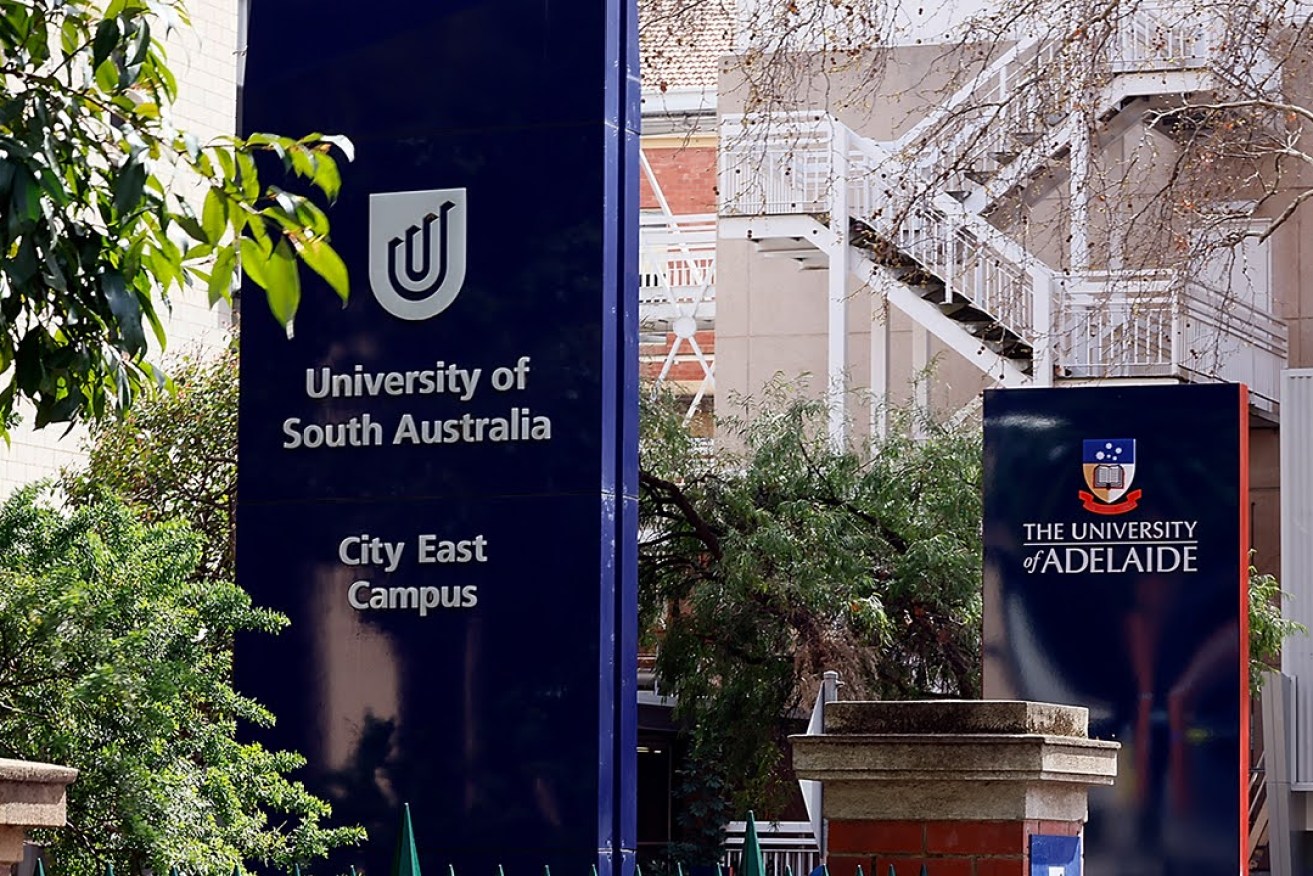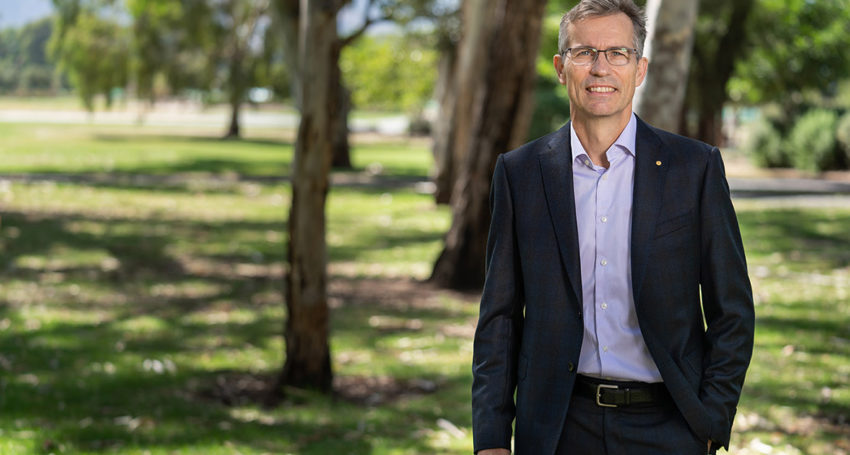Uni staff divided over latest merger push
South Australian university staff are evenly split on whether they support the Malinauskas Government setting up a commission to investigate a potential merger of the state’s top three universities.

Photo: Tony Lewis/InDaily
The new state government’s first State Budget announced on Thursday allocated $1 million in 2022-23 to employ three full-time equivalent employees led by an “eminent commissioner” with experience in higher education.
According to budget papers, the commission would consult business leaders, university unions and student representatives to advise the government on a university merger.
The commission was a Labor election promise, with a pre-election policy document stating that it was a “harsh truth” that South Australia’s universities alone are “too small and too undercapitalised to make it into the list of top international universities”.
The document said that the current size of SA universities was “holding our state back” as they “simply don’t do enough large-scale research to be recognised as world leading”.
“Should the independent commission determine that a university merger is in the interest of the South Australian economy and the welfare of the people of the state, then a merger will be a first term priority for a Labor government,” it stated.
But a survey of about 300 National Tertiary Education Union (NTEU) SA members, conducted last month with the results due to be released later today, found 52 per cent do not support the policy, with the remaining 48 per cent either supporting or partly supporting it.
The union estimates between 10,000 to 20,000 people currently work across the state’s university sector.
You don’t want to spend your political capital on starting a fight with staff and students
NTEU SA president Andrew Miller told InDaily the policy was “written as if the merger was pre-determined” and some workers were concerned about the impact a university amalgamation could have on their employment.
“I’ve spoken to (Premier) Peter Malinauskas and said: ‘The way you pitched this makes it look like you’ve already determined the merger outcome without even having had the inquiry’,” he said.
“On face value, I can understand why there is a 50/50 split because some people have gone, well, if you’re going to pre-determine the outcome, we disagree with it.”
Top concerns workers had about a university merger included:
- Loss of jobs and expertise
- Loss of student choice and accessibly
- Loss of discipline diversity
- Loss of institutional or departmental identities
- Loss of diverse cultures
- Loss of local connections and institutional histories
- Loss of democratic participation
- Concerns about whose interests were being served
Miller said the “resounding majority” of respondents agreed that the commission needed to consult staff, students and unions and not privilege the views of Vice-Chancellors and university councils.
He said he met with Malinauskas last month and urged him to consider broadening the scope of the commission to allow it to consider alternative ways of improving the university sector, other than an amalgamation.
“I said to him: ‘You don’t want to spend your political capital on starting a fight with staff and students at universities and the communities they serve when you need it’,” he said.
“If you set up the commission so it’s a proper exploration about what a healthy and robust sector looks like… everyone would celebrate that work.
“It’s high time that we finally unearth all the horrible corporate tendencies that have polluted and corrupted the functioning of our universities.
“It might not require mergers or trying to build giant universities that reach the top 100. There are other ways to really seriously improve our sector and that’s what the commission should be looking at.”
Miller said Malinauskas gave him a “commitment” that all stakeholders would be treated equally during the commission’s inquiry and that the government would not predetermine the outcome.
He said he was unsure when the government would release the terms of reference for the commission’s inquiry.
InDaily contacted a spokesperson for Deputy Premier Susan Close, under whose portfolio the university merger commission falls, but is yet to receive a response.
Third attempt to merge SA’s universities
Labor’s policy to examine an SA university merger comes four years after the most recent attempt at creating a “super university”, when the University of South Australia and the University of Adelaide announced they were in discussions to amalgamate.
The universities commissioned an interim report on the merits of a merger by Nous Consulting group, but the idea was killed off by UniSA after four months of deliberation.
At the time, UniSA Vice-Chancellor David Lloyd said that after weighing up the costs and benefits, there was “not a compelling case to support a merger of the two universities”.
“Our university has been cautious never to allow the light of optimism or ambition to blind robust and evidence-based projection and planning,” he wrote in an email to staff.
“We have arrived at an outcome which may be reflected on by some as a missed opportunity and equally by others as the outcome of choice – such is the nature of debate and investigation on matters of importance and where both heads and hearts are invested in the result.”
In a statement to InDaily this morning, Lloyd said UniSA was “looking forward to seeing the details of the commission when they are released and we would welcome the opportunity to participate”.
After the 2018 discussions fell through, the University of Adelaide maintained that a merger would have been in the best interests of the state.
Its current Vice-Chancellor Peter Høj is an outspoken advocate for universities mergers, stating that a previous aborted amalgamation bid in 2012 played a decisive role in his decision to leave South Australia.

University of Adelaide Vice-Chancellor Peter Høj. Photo: Supplied
“My personal view is that universities in Australia will have to look very deeply at themselves if normality after COVID doesn’t reappear,” he told InDaily last year.
“In other words, if Australian universities do not have the benefit of having a substantial number of international students in the cohort, then you’ve got to look at how else you resource yourself to deliver what the society, in this case, South Australia, expects you to deliver.
“It’s through that prism… that part of your activities would be to be very open-minded about looking at the pros and cons of mergers.”
A University of Adelaide spokesperson told InDaily this morning that the institution was looking forward to working with the government on the Commission.
“We accept the importance of the university sector serving the interests of our students and the state to the highest level possible,” the spokesperson said.
“The University of Adelaide will fully cooperate with the proposed University Merger Commission to assist the achievement of this outcome.”
Flinders University declined to comment.
Treasurer Stephen Mullighan told InDaily yesterday that the Commission was only funded for the 2022-23 financial year, with Malinauskas and Close to announce timeframes and appointments in the second half of this year.




